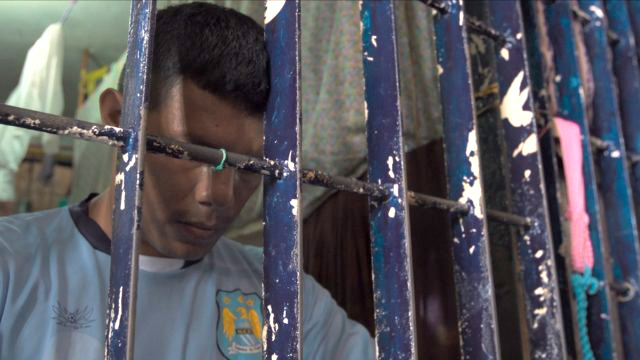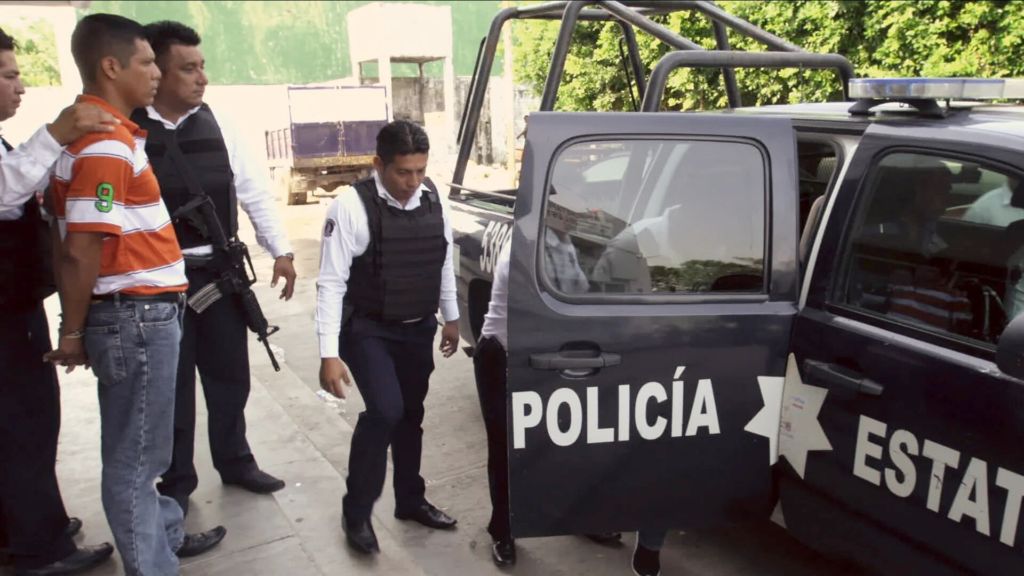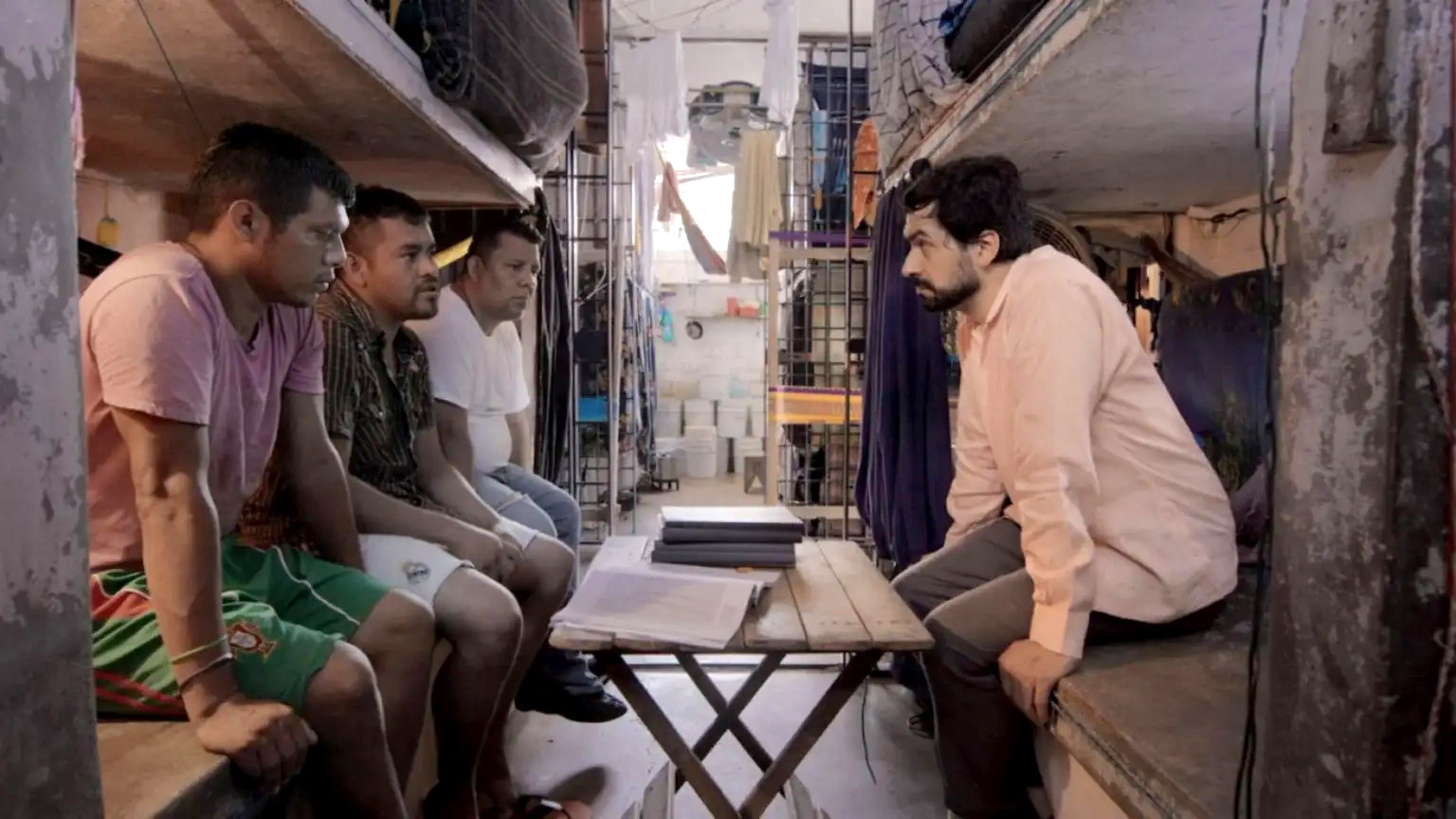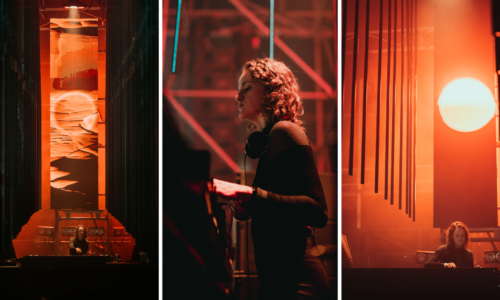Summer interview (5): How Roberto Hernández had to flee the country because of a documentary
-
 Reasonable Doubt. Videostill: Netflix
Reasonable Doubt. Videostill: Netflix
With his film 'Duda razonable' director Roberto Hernández challenged the powerful Mexican authorities. He had to flee to the Netherlands and now lectures at Radboud University as artist in residence.
‘Is it always this warm here in May?’ asks Roberto Hernández as he walks down the stairs after his lecture. Not that the director can’t handle some heat. In Duda razonable. Historia de dos secuestros, you see sweat running down his brow during his interviews with inmates in Mascupana, in the state of Tabasco, where temperatures can easily reach 40°C.
Summer interviews
This is the fifth episode of a series of summer interviews. The articles also appeared in Vox magazine, which is available everywhere on campus. You can find the magazines our special magazine bins.
As a student, Hernández discovered how corrupt the legal system was in his home country. ‘We had to learn the civil code by heart, but in court, it was all about who you knew and whether you were willing to pay a bribe to get someone free.’ He decided to use his knowledge and sense of justice to help innocent prisoners via stories, which he did in his earlier films El túnel (2006) and Presunto culpable (2008).
Duda razonable (available as a mini-series on Netflix under the title Reasonable doubt: A tale of two kidnappings) is about Hernández’ struggle to help four prisoners who are wrongly imprisoned for attempted kidnapping. He has no trouble proving that the men were arrested and imprisoned without any evidence, to make it look as if the Mexican Public Prosecutor and police are taking decisive action against crime.
‘I didn’t want to conceal my involvement in the process,’ he says about his own role in the film. ‘I arranged a good lawyer for the four men, helped them round up witnesses, and exposed legal errors. By getting involved, I was able to test the system. I wanted to make this as transparent as possible for viewers, so that they could draw their own conclusions.’
Car crash
Duda razonable starts with a car crash. Héctor Muñoz’ car is hit by another vehicle near a petrol station. Angrily, he steps out to seek redress. As he approaches the other vehicle, the driver shoots him in the hand. Muñoz flees. The shooter, referred to in the film by his initials, ACP, tells the police, when they arrive, that Muñoz was trying to kidnap him. Besides Muñoz, ACP also points to two other men standing at the petrol station with engine trouble. A fourth man is arrested elsewhere because of his alleged involvement in the earlier kidnapping of ACP’s sister.
‘Crime continues to grow in Mexico, and there’s no capacity to address it,’ explains film maker Hernández. ‘As a result, prosecutors have become judges. This isn’t a problem for the elite, because the people arrested usually come from the poorer segments of the population. The system is racist and discriminatory. The elite makes sure they have bodyguards, and when they get in trouble, they just bribe someone. Everyone knows what’s going on. I asked a room full of prisoners in Mascupana who had been tortured during police interrogations. Approximately half the people in the room raised their hand. I then asked a room full of policemen who believed that people should not be tortured during interrogations. Not one person raised their hand.’
‘Netflix didnt dare to include that part in the film’
Hernández works fearlessly in his documentaries. He repeatedly films the prosecutors’ furious glances as they walk in and out of court. He even manages to discover who was responsible for the torture. ‘It was quite easy to find out who had done it, but Netflix didn’t dare include it in the film,’ he says. ‘The local newspapers did write about it. After the film came out, the people responsible appeared on the front page with their name and photograph. Not that this had any consequences. They’re still in the same jobs. One prosecutor was even promoted to Mexico City, where he is now responsible for an area of 18,000,000 inhabitants.’

During the court proceedings, the van of the lawyer hired by Hernández burst into flames while on the road. The lawyer was in the van with two expert-witnesses who had just dismantled the prosecutor’s story during a reconstruction. The van’s doors wouldn’t open, but the group nevertheless managed to get out. Clearly, malicious intent was involved. The lawyer, who previously worked for the prosecutors and was seen as a traitor, also received threatening telephone calls.
Journalists are disappearing
That was the point when Hernández decided that he had to leave the country. ‘A lot of journalists in Mexico are disappearing. I fled to the Netherlands with my family. We have friends in the Netherlands, I’d been here once on a visit, and I love cycling. I requested – and was granted – asylum as a refugee.’ He believes that he may one day be able to return to Mexico. ‘But only once the people I thwarted are no longer in power.’
Hernández is happy with his lectures in Nijmegen. As artist in residence at the Spanish Language and Culture department, he teaches lectures in the La cultura de los derechos humanos en el mundo hispánico (Human rights and culture in the Spanish-speaking world) series. ‘I’ve been here for nearly a year. I’ve finally got something to do, and the students are great.’ This summer, Hernández wants to learn Dutch and complete his PhD thesis.
For the prisoners – spoiler alert (!) – the film doesn’t end well. One of them is released, the other three also seem to be on the verge of being released thanks to Hernández’ work, but the Mexican prosecutors, unimpressed by the prospect of bad publicity, appeal at the last moment, and succeed in having the three sentenced to fifty years in prison.
Duda razonable drew a lot of attention in Mexico. The President spoke about it, as did a member of the Supreme Court. This highest legal body is now reconsidering the case, and the men may after all be released, be granted a new trial, or have their sentence shortened. ‘Above all, I hope the Supreme Court will take a decision that will make an impression. Something has to change.’





